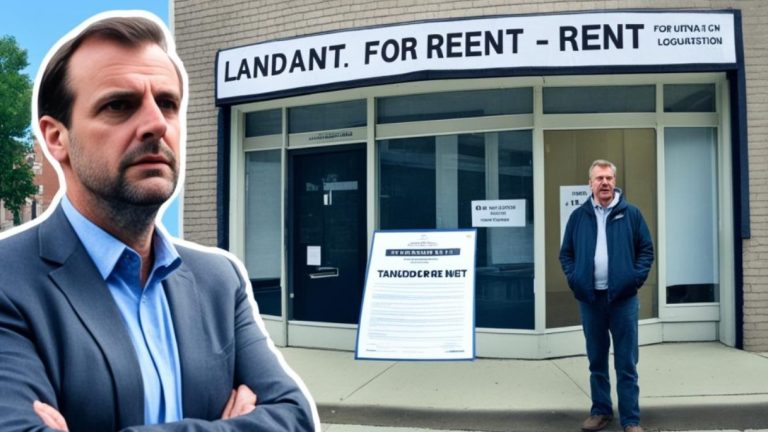Tenancy agreements can sometimes feel complicated, especially if you are renting for the first time or dealing with short-term lets. Many tenants in the UK begin with a 6-month tenancy agreement, which is the minimum term for most Assured Shorthold Tenancies (ASTs).
But what exactly happens when those six months are over? Do you have to move out, sign a new agreement, or does it automatically roll on?
This guide breaks down everything you need to know about what happens at the end of a 6-month tenancy, the legal rights of both landlords and tenants, and the options available to you going forward.
What is a 6-Month Tenancy Agreement?

A 6-month tenancy agreement is usually an Assured Shorthold Tenancy (AST), which is the most common type of rental contract in England and Wales. Under this agreement:
- The tenant commits to staying in the property for at least 6 months.
- The landlord cannot ask the tenant to leave during this period unless there is a breach of contract (e.g., non-payment of rent).
- The agreement will set out rent, responsibilities for repairs, and other rules.
After the fixed 6 months, what happens next depends on the type of contract and what both parties want to do.
What Happens at the End of the 6-Month Period?
When the fixed term ends, there are several possible outcomes. These usually fall into four main categories:
1. The Tenancy Becomes a Periodic (Rolling) Tenancy
If neither party takes any action, most tenancy agreements automatically become periodic. This means:
- The tenancy continues on the same terms as the fixed agreement.
- Rent is paid monthly (or weekly, depending on the original contract).
- The tenant can leave by giving the landlord one month’s notice in writing.
- The landlord can end the tenancy by serving a Section 21 notice giving at least two months’ notice.
This is the most common outcome, as it provides flexibility for both sides.
2. Renewing or Extending the Tenancy
Sometimes, landlords prefer tenants to sign a new fixed-term contract after the first 6 months. In this case:
- A new tenancy agreement (e.g., another 6 months or 12 months) is signed.
- The terms may stay the same or change (such as an increase in rent).
- Both parties are committed for the new fixed period.
This option gives security to both landlord and tenant but reduces flexibility.
3. Ending the Tenancy and Moving Out
If either party decides not to continue:
- The tenant can move out at the end of the fixed term without giving additional notice (unless the agreement requires it).
- The landlord must follow proper legal procedures to regain possession. They cannot simply change locks or remove belongings.
This is often chosen if the tenant wants to relocate or if the landlord plans to sell or move back into the property.
4. Negotiating New Terms
At the end of a 6-month tenancy, tenants and landlords can negotiate changes. For example:
- Rent adjustments
- Allowing pets
- Adding or removing clauses in the contract
This requires a new written agreement signed by both parties.
What Are the Landlord’s Rights and Responsibilities After 6 Months?

When the initial six-month tenancy agreement ends, landlords continue to have legal rights, but they also retain important responsibilities that protect tenants.
These rights and duties are set out under the Housing Act 1988, the Deregulation Act 2015, and general landlord-tenant law in England and Wales. Understanding them is essential to avoid disputes or unlawful practices.
1. The Right to Regain Possession (with Proper Notice)
- After the fixed term ends, landlords can serve a Section 21 notice, often called a “no-fault eviction.”
- This gives the tenant at least two months’ written notice to vacate the property.
- However, the notice can only be valid if the deposit was protected in a government-approved scheme, and the tenant received certain documents such as the EPC (Energy Performance Certificate) and the “How to Rent” guide.
- If these conditions haven’t been met, a Section 21 notice could be invalid.
2. The Right to Increase Rent
- Landlords can review and increase rent after six months, especially if the tenancy moves into a rolling periodic agreement.
- Rent increases must be fair, in line with market rates, and done legally — usually by serving a Section 13 notice or by agreement with the tenant.
- A tenant can challenge an unfair increase by appealing to the First-tier Tribunal.
3. Responsibility for Repairs and Maintenance
- Even after the fixed term ends, landlords must continue to keep the property safe and habitable.
- This includes repairing the structure, heating, water supply, and ensuring the property meets health and safety standards.
- Gas and electrical checks must still be carried out regularly.
4. Respecting Tenant Rights and Privacy
- Landlords must not harass tenants to force them out — this could amount to illegal eviction, which is a criminal offence.
- Tenants must be given at least 24 hours’ written notice before the landlord or an agent enters the property.
5. Returning the Deposit Fairly
- If the tenancy ends after six months and the tenant moves out, the landlord must return the deposit within 10 days of agreeing any deductions.
- Deductions must be reasonable and evidence-based, such as unpaid rent or property damage.
In short, landlords do not lose their powers after the 6-month mark, but their responsibilities also remain. Failing to follow the proper process can expose landlords to legal claims and financial penalties.
Wjat Are the Tenant’s Rights and Choices After 6 Months?
For tenants, the end of the six-month tenancy offers flexibility and choice. Many renters worry they may be forced to leave or locked into a new agreement, but UK law provides a range of protections and options.
1. The Right to Stay as a Periodic Tenant
- If you don’t sign a new contract, your tenancy usually becomes periodic.
- This means you can remain in the property under the same terms, paying rent monthly or weekly as before.
- You are not obliged to leave unless your landlord serves proper notice.
2. The Right to End the Tenancy Freely
- Tenants can choose to leave at the end of the 6-month fixed term without giving notice (though informing the landlord is always wise).
- If the tenancy rolls into periodic, tenants must give at least one month’s written notice, ending on a rent due date.
3. Protection from Unfair Eviction
- A landlord cannot force you out without serving a valid Section 21 or Section 8 notice.
- They also need a court possession order if you refuse to leave after notice expires.
- This protects tenants from “revenge evictions” or harassment.
4. Protection from Unfair Rent Increases
- If your landlord proposes to raise the rent, you have the right to challenge it.
- Rent increases must follow proper legal steps, and you can take the case to a Rent Tribunal if you feel it’s unreasonable.
5. The Right to Repairs and Safety
- Your rights to a safe and well-maintained home continue after the fixed term ends.
- You can still request repairs, report safety issues, and expect your landlord to meet their obligations.
Section 21 vs Section 8 Notices
Understanding eviction notices is crucial when a tenancy ends.
- Section 21 Notice: The landlord doesn’t need to give a reason for ending the tenancy but must give 2 months’ notice.
- Section 8 Notice: Used when a tenant breaks the tenancy terms (e.g., rent arrears or property damage). Notice periods vary depending on the grounds.
At the 6-month mark, landlords typically rely on Section 21 if they want possession.
Do You Have to Give Notice at the End of a 6-Month Tenancy?

- Tenants: If you plan to leave on the final day of the fixed term, you usually don’t need to give notice (though it’s polite to do so). If you stay beyond that, you must give one month’s notice.
- Landlords: Must serve proper notice through Section 21 or Section 8 if they want you to leave.
Common Scenarios Explained
Here are a few examples of what might happen in real life:
- Tenant wants to stay, landlord is happy too
→ The tenancy simply rolls on periodically, or a new contract is signed. - Tenant wants to leave after 6 months
→ They can move out at the end of the fixed term without penalty. - Landlord wants possession after 6 months
→ Must serve Section 21 at least 2 months in advance. - Disagreements over rent or conditions
→ Both parties can negotiate, but if no agreement is reached, the tenant can leave or the landlord can seek possession through the proper process.
What Are the Benefits of Rolling Tenancies vs Renewals?
| Option | Pros | Cons |
| Rolling (Periodic) | Flexible, no new paperwork, easy to leave with notice | Less security, rent may be increased |
| Renewed Fixed Term | Security for both sides, protects against sudden eviction | Less flexibility, may come with higher rent or stricter clauses |
How to Decide What to Do?
When your 6-month tenancy ends, consider the following:
- Do you want to stay long-term? → Renew the tenancy for security.
- Do you want flexibility? → Let it roll into a periodic tenancy.
- Do you want to move? → Plan your move and leave at the end of the term.
- Is your landlord raising the rent unfairly? → You can challenge it through a tribunal.
What Are the Tips for Tenants When a Tenancy Ends?
Ending a tenancy can feel overwhelming, especially if you’re unsure of your rights and responsibilities. By preparing in advance and following a few key steps, tenants can leave on good terms, protect their deposit, and avoid unnecessary disputes.
Communicate Early with Your Landlord
One of the best ways to make the process smooth is to talk to your landlord well before the tenancy expires. Letting them know whether you plan to stay or leave helps both sides prepare.
For instance, if you wish to continue living in the property, you can agree on whether it will roll into a periodic tenancy or whether a new fixed term should be signed.
Review Your Tenancy Agreement
Before taking any action, revisit the original tenancy agreement. Some contracts may require written notice even if you intend to move out at the end of the six months, while others allow you to simply vacate. Understanding the terms will help you avoid unexpected charges or disputes.
Preparing the Property for Check-Out
When leaving, it’s important to return the property in good condition. General wear and tear is acceptable, but damage or neglect could lead to deductions from your deposit.
Many tenants choose to deep clean the property and repair small issues like scuffed walls or broken fittings before the inspection. Taking photographs as evidence can also help if disagreements arise later.
Handling Bills and Utilities
Another essential step is dealing with final bills. Notify your gas, electricity, water, and broadband suppliers that you are moving, provide final meter readings, and settle outstanding balances.
This ensures you are not held responsible for usage after your departure. It is also a good idea to redirect your mail through Royal Mail’s redirection service to prevent important documents from going astray.
Protecting Your Deposit
Once the tenancy ends, your landlord is required to return your deposit within ten days of reaching an agreement on deductions.
If you believe any deductions are unfair, you have the right to challenge them through the tenancy deposit protection scheme. Keeping a record of correspondence and photos of the property can make your case stronger if a dispute occurs.
What Are the Tips for Landlords at the End of a Tenancy?
For landlords, the end of a tenancy is a chance to assess the situation, decide whether to renew, and ensure the property is ready for either the same tenant or a new one.
Acting fairly and following the correct legal process will not only protect you from disputes but also help maintain a positive reputation.
Deciding on Renewal or Possession
The first step is to decide whether you want the tenant to remain in the property. If they have been reliable with rent payments and have taken good care of the home, it may be in your best interest to encourage them to stay.
This can be achieved by allowing the tenancy to roll into a periodic one or offering a new fixed-term contract. If you prefer to regain possession, you must serve notice properly through either a Section 21 or Section 8 notice, giving the tenant sufficient time to leave.
Conducting a Thorough Inspection
When a tenancy ends, a detailed check-out inspection is vital. Comparing the condition of the property to the original inventory allows you to identify damages beyond fair wear and tear. Having the tenant present during this inspection can also help avoid disputes, as both parties can agree on the property’s condition at the time of departure.
Returning the Deposit Fairly
The deposit must be returned promptly, usually within ten days, once deductions are agreed upon. If deductions are necessary for cleaning, repairs, or unpaid rent, they should be supported with clear evidence such as receipts or photographs. Being transparent not only strengthens your position in case of a dispute but also demonstrates professionalism.
Preparing the Property for the Next Tenant
If the outgoing tenant is leaving, it is wise to refresh the property quickly. This may include professional cleaning, minor repairs, or updating safety checks such as gas and electrical certificates. A well-maintained property will attract new tenants faster and reduce any vacant periods between lettings.
How to Maintaining Good Communication and Records?

Clear communication throughout the end-of-tenancy process is essential. Keeping all correspondence, notices, and agreements in writing ensures you are legally protected if issues arise. Additionally, treating tenants respectfully can help build trust and increase the likelihood of a smooth handover.
Final Thoughts
The end of a 6-month tenancy is not as daunting as it may seem. In most cases, your tenancy will either continue automatically on a rolling basis or you can choose to sign a new agreement. The key is understanding your rights and communicating clearly with your landlord.
Whether you decide to stay, renew, or move on, knowing the legal processes will help you make the best decision for your circumstances.
Frequently Asked Questions
Can I be evicted immediately after 6 months?
No. Even if the landlord wants possession, they must give you notice (usually 2 months).
Do I need to sign a new agreement?
Not necessarily. If you don’t, your tenancy will roll on as periodic.
What if my landlord increases rent after 6 months?
They must follow proper procedures. Tenants can challenge unfair rent increases.
Can the landlord ask me to leave without notice?
No. A court order is required if you refuse to leave after proper notice.






